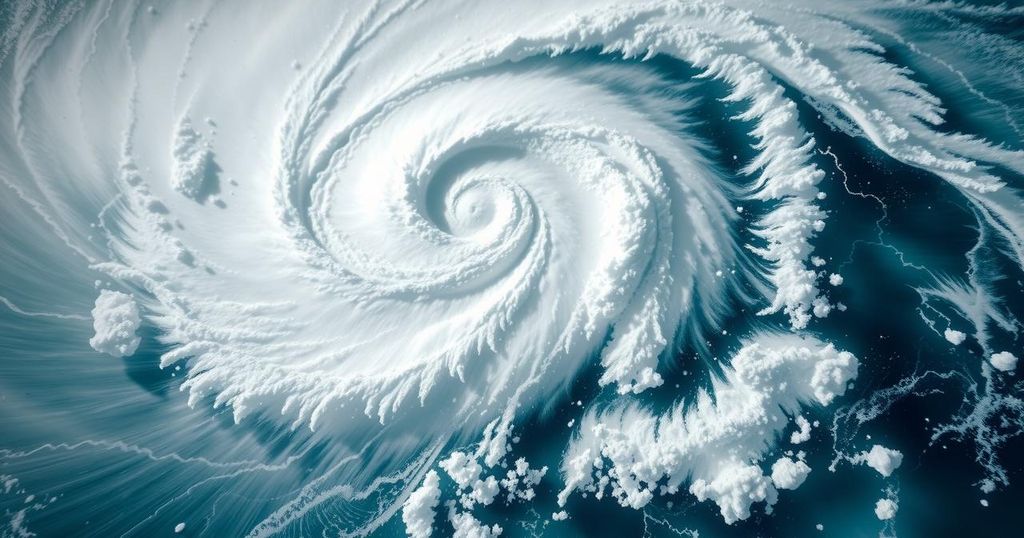Tropical Cyclone Chido Hits Mayotte, Bringing Unprecedented Destruction

Tropical cyclone Chido devastated Mayotte on December 14, 2023, with winds exceeding 200 km/h, causing significant damage and loss of life despite early warnings. This event marks the strongest storm to hit the island in 90 years, prompting a national mourning declaration by French President Emmanuel Macron and extensive emergency response operations.
Tropical cyclone Chido struck the island of Mayotte in the Indian Ocean on December 14, reaching wind speeds exceeding 200 km/h and gusts surpassing 225 km/h. This event marked the most powerful storm to affect Mayotte in over 90 years, as reported by Météo-France. Accompanied by torrential rain measuring 176 mm within 12 hours and perilous sea conditions with wave heights above 5 meters, the cyclone caused severe damage, including the destruction of Météo-France’s observational equipment.
In response to the storm, French President Emmanuel Macron instituted a national mourning period, and extensive emergency relief operations were launched given early estimates that hundreds may have perished. Notably, the high death toll occurred despite timely warnings issued over 50 hours in advance from Météo-France, who activated an amber alert on December 13, escalated to a red alert later that day, and ultimately to a violet alert on the day of impact.
Chido followed an atypical path, narrowly missing nearby Madagascar, which typically experiences a dampening effect on cyclones. The cyclone made a direct hit on Mayotte, engulfing the island completely. After impacting Mayotte, Chido moved on to Mozambique on December 15, where it continued to cause heavy rainfall affecting both Mozambique and Malawi.
Météo-France commented on the event, stating, “The impacts of Chido are above all due to its track and the direct hit on Mayotte. This is an extremely rare event not seen for 90 years. Our current state of knowledge doesn’t allow us to draw any conclusions about the role of climate change on the track of the cyclone and on its intensity.”
Furthermore, Météo-France La Réunion serves as the Regional Specialized Meteorological Centre for the South-West Indian Ocean, which had accurately forecasted the seasonal cyclone activity, predicting an earlier start to the 2024-2025 season with a potential for 9 to 13 systems, four to seven of which may escalate to tropical cyclone status.
The recent impact of tropical cyclone Chido on Mayotte raises significant concerns regarding climate events in the Indian Ocean region. Cyclones in this area are not unprecedented, but the intensity and direct hit of Chido after a long period of relative calm underscores changing climatic conditions. Météo-France has highlighted the absence of a cyclone of such strength for ninety years, suggesting that this event may be part of broader climatic trends, though the direct influence of climate change on this specific cyclone remains unclear. Preparations and meteorological predictions for the upcoming cyclone season are critical for community safety, given the potential for increased cyclone activity highlighted by previous forecasts.
In summary, tropical cyclone Chido represents a serious meteorological event for Mayotte, characterized by unprecedented wind speeds and rainfall. The extensive loss of life and damage underscores the vulnerability of the island, particularly due to its informal housing structures and inadequate preparedness for such extreme weather. As global weather patterns continue to evolve, ongoing monitoring and improved emergency response protocols will be essential in mitigating the effects of future cyclones in this region.
Original Source: wmo.int






